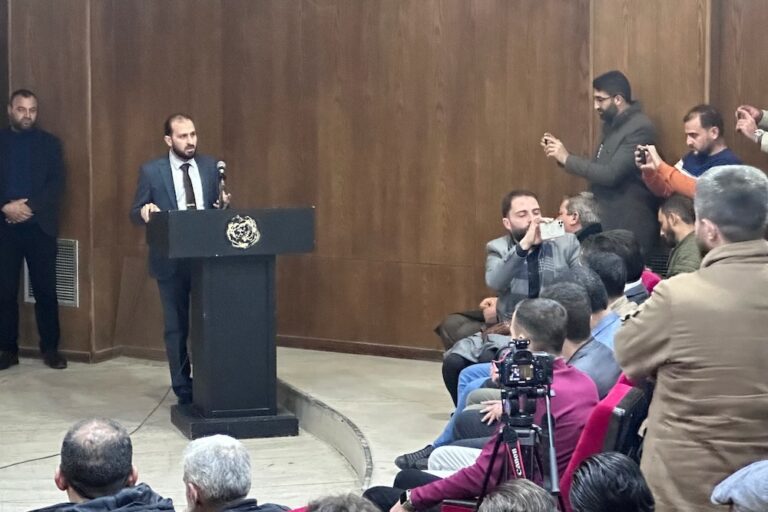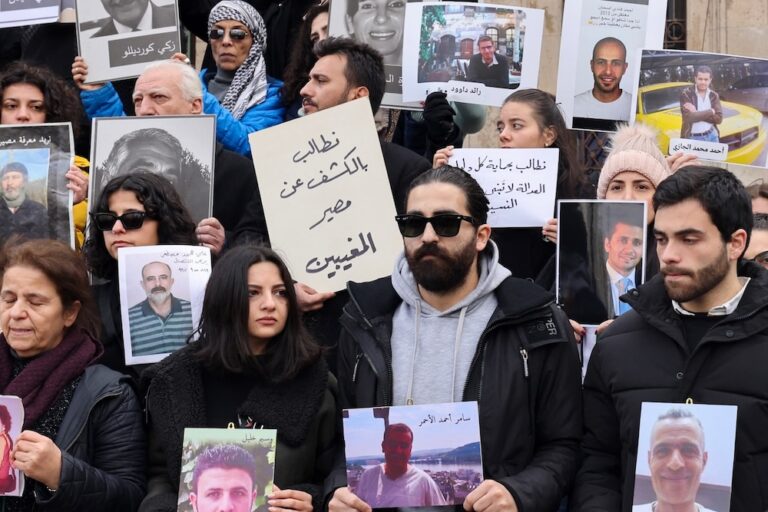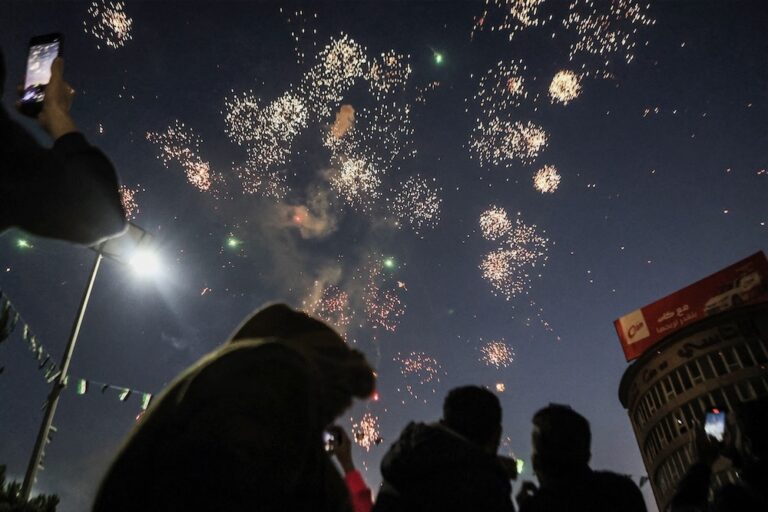Physical attacks, arrests, bans on visiting certain regions, deportations and disappearances all seem to be among the measures being used by the authorities to intimidate journalists trying to work in an independent and professional manner.
(RSF/IFEX) – Reporters Without Borders is concerned about the fate of two Beirut-based Lebanese journalists working for Reuters television who have been missing in Syria since the evening of 26 March 2011. The press freedom organisation also condemns the Syrian government’s decision to withdraw the accreditation of the Reuters correspondent in Damascus on 25 March.
The Syrian authorities have been tightening security in recent days in order to enforce a news blackout on anti-government demonstrations and on the violence being used by the police to disperse the protests. Physical attacks, arrests, bans on visiting certain regions, deportations and disappearances all seem to be among the obsolete and archaic measures being used by the authorities to intimidate journalists trying to work in an independent and professional manner.
In a 27 March dispatch, Reuters reported that it last heard from producer Ayat Basma and cameraman Ezzat Baltaji as they were about to leave Damascus and return to Beirut on the evening of 26 March. The last contact was a telephone text message from Baltaji to a colleague in Beirut saying “We will leave now.” They had arranged for a taxi to meet them on the Lebanese side of the border crossing, but they never showed up.
Reuters said it had asked the relevant authorities in Syria “for their help in securing our colleagues’ safe return home.” The two Reuters television journalists had travelled to Syria on 24 March to cover the protests against President Bashar al-Assad.
Reuters also reported that the Syrian government has withdrawn the accreditation of its text correspondent in Damascus, Khaled Yacoub Oweis, accusing him of filing “unprofessional and false” reports about recent events in Syria. A Jordanian national, Oweis had been based in Damascus since February 2006 and was Reuters’ first accredited correspondent in Syria.
Journalists meanwhile confirmed to Reporters Without Borders that the security forces banned them from entering the southern city of Deraa on 25 March, forcing them to return to the capital in convoys escorted by the security forces.
The authorities said the ban was for their own safety and told them they would have to get a permit from the information ministry if they wanted to visit Deraa, where major protests have been taking place. As 25 March was a Friday, all government offices were closed.
Although the government has lifted the state of emergency and released 260 detainees, the Kurdish blogger Kamal Hussein Sheikhou, the blogger Ahmed Hadifa and the journalist and writer Mohamed Dibo – all arrested since the start of the street protests – are still being held.
Ali Al-Abdallah, a journalist and writer who is serving an 18-month jail sentence on a charge of “trying to harm Syria’s relations with another state,” is also still in prison.


